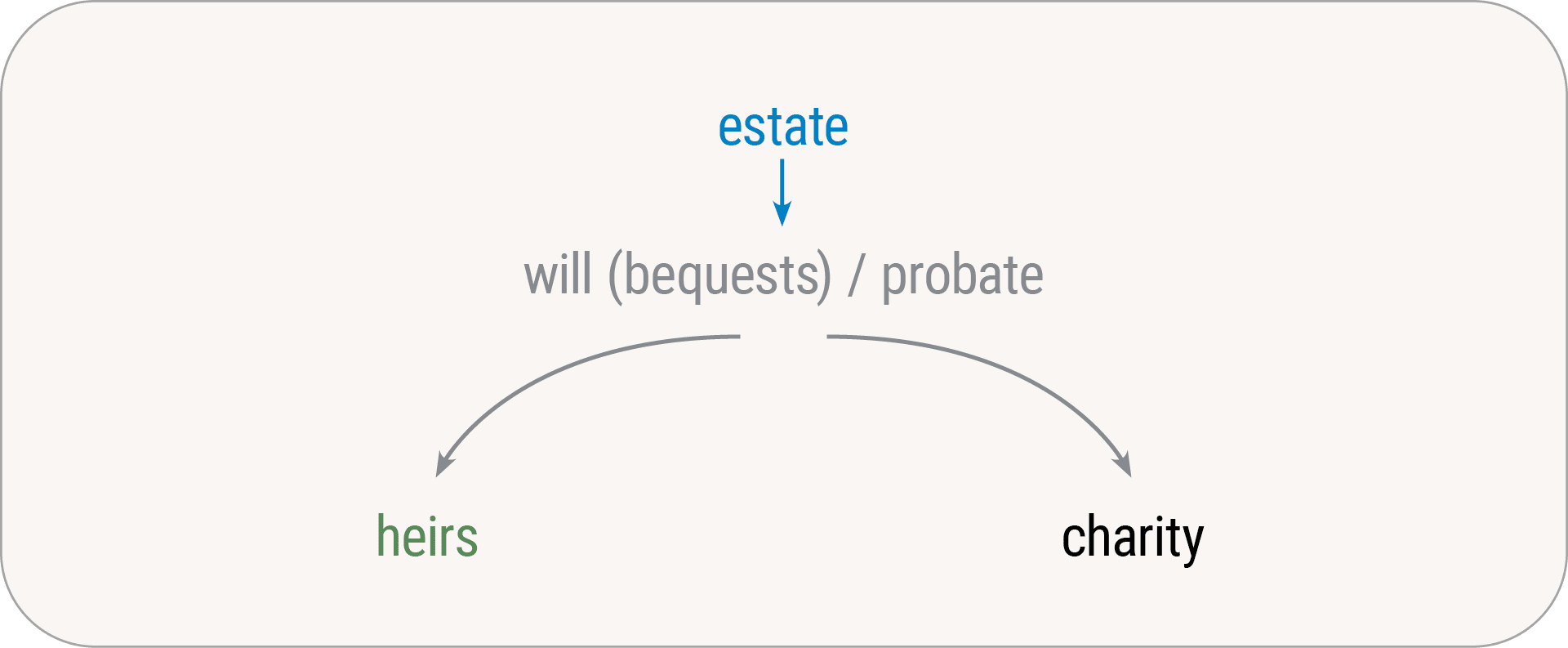A Gift in Your Will
With a gift in your will, you can make a powerful future gift that costs you nothing today.
You may find that making a gift in your will is an easy way to meet your charitable goals—perhaps even allowing you to make a more substantial gift than would otherwise be possible. Consider the following:
- It is simple to include a charitable gift when you write your will.
- It is almost as easy to add a gift to an existing will—you can use a codicil, so it is unnecessary to redo your will to make this addition.
- There is no immediate out-of-pocket cost—you retain full use of your assets during life, so the gift does not impact your current lifestyle.
- This is a comfortable gift because you can change it at any point during your life.
- You can make an unrestricted gift or direct how you want your gift to be used.
You also have flexibility in how you designate your gift. You can choose to give:
- A specific asset or amount
- A percentage of your estate
- What remains of your estate after all other gifts, taxes, and fees have been paid
Your will controls most property, but not all.
Keep in mind that not all property passes under your will. For example, a life insurance policy, IRA, or other retirement or financial account will pass outside your will. Click here to read about how to donate those assets using a simple beneficiary designation.
Evaluate the fit.
A gift in your will may be a particularly good option to consider if you:
- Are interested in a simple, powerful gift that costs you nothing today
- Want the flexibility of a gift you can change in the future if your situation or goals change
- Are seeking ways to reduce any potential estate tax (a gift in your will qualifies for a federal estate tax charitable deduction)
- Are looking at options to fund an endowment gift, testamentary charitable remainder trust, or testamentary charitable lead trust
Don’t have a will? Consider the consequences.
Do you find yourself in the half of all Americans who do not have a will? Whatever your age or the amount of your assets, if you die without a valid will or living trust, state law distributes your property without any consideration for your unique personal situation and wishes. LEARN MORE ABOUT THE DOWNSIDES OF NOT HAVING A WILL . HIDE
See how it works.
Grace wants to include a charitable gift to us in her will. She considers making a specific donation of 100 shares of stock but realizes this gift will surely change in value over time—perhaps significantly. Instead, she decides to leave a percentage gift—40% of her estate to each of her two children and 20% to Citizens & Scholars. When Grace dies, her executor will carry out her wishes by distributing her assets according to her instructions.

Consider your timing.
It's never too early to create or update your will! And since a gift in your will does not qualify for a charitable income tax deduction, you can plan this gift at any time that is convenient for you.
We can help.
Let us provide you with more information about making a gift in your will, along with the specific language to provide to your attorney (including our official legal name and address).
Adding a gift in your will? We can make it even easier.
Click here for the legal language you can provide to your attorney.
We appreciate you including us in your planning.
Making a gift to Citizens & Scholars in your will qualifies you for membership in the Fellows Legacy Society. This is our way to thank you for supporting our future as you plan for yours. Read more about the Fellows Legacy Society.

